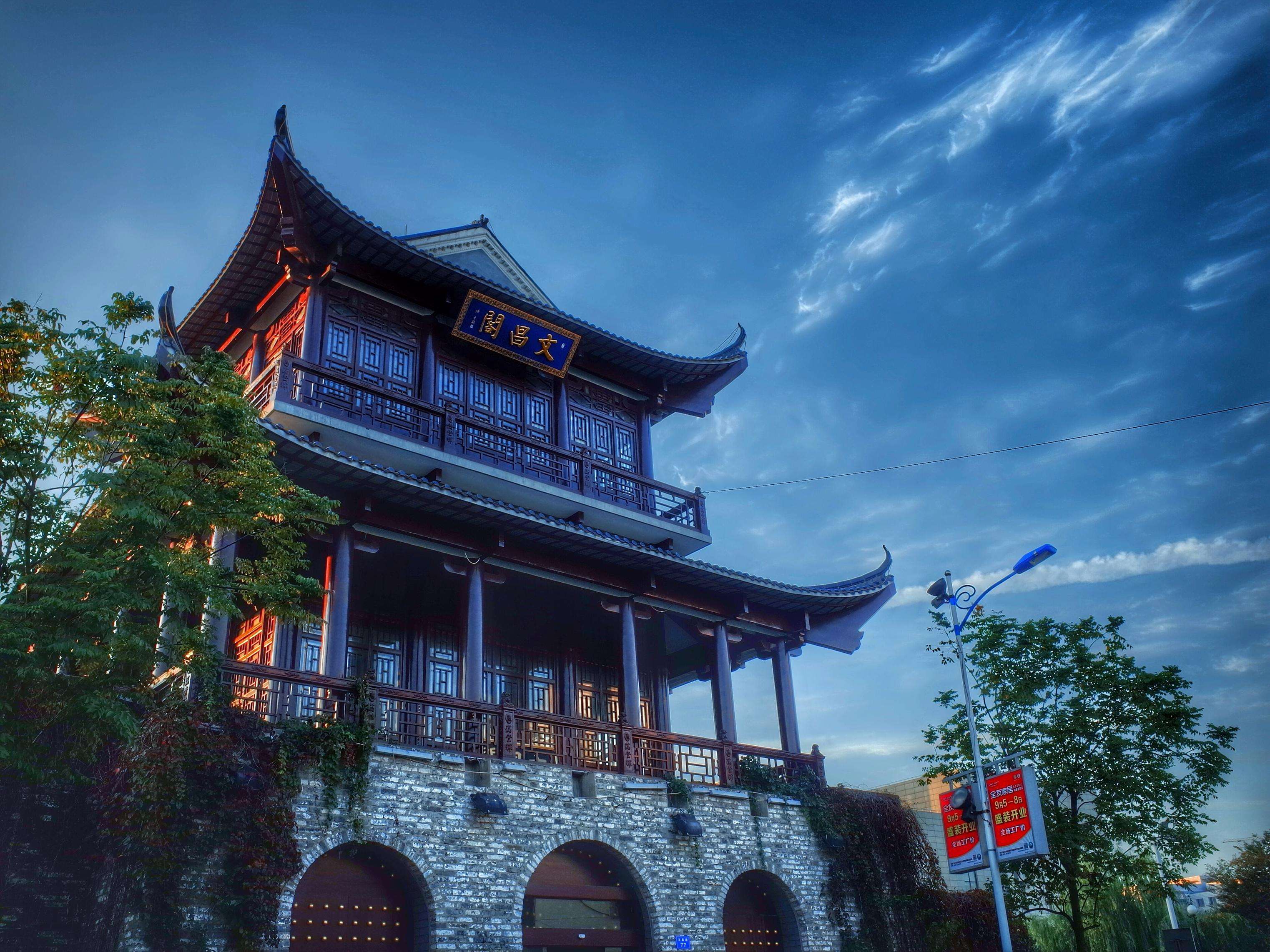




QR Code for the Conference Website (Mobile)
" Dear Delegates and All Participants,
I am deeply honored to convey, on behalf of the Organizing Committee of the 10th International Medicinal Mushroom Conference (IMMC10), our sincere gratitude to all of the experts, scholars, company representatives, and all of the participants who will be attending the 10th International Medicinal Mushroom Conference.
Medicinal mushrooms have a long history in China. About 2500 years ago, mushrooms were first reportedly used for medical purposes. The first medicinal book written in China was “The Classic of Herbal Medicine” (B.C. 200-B.C. 102) and covered agricultural and medicinal plants; 12 different kinds of medicinal mushrooms were mentioned, and some of these are still being used today. When the 1st IMMC was held in Kiev in the Ukraine in 2001, it was agreed that there would be other IMMCs every two years. The IMMC5 and IMMC7 were both held in China, and the IMMC10 will be held in Nantong, China, during the period of September 19-22, 2019. The success of this conference would not be possible without the support and help provided by the delegates and participants from all over the world.
The IMMC10 will be a grand international event, specializing in a wide variety of academic discussions. The conference theme is “Medicinal Mushroom Science: Innovations and Challenges”. The conference is supervised by International Society for Medicinal Mushrooms and Jiangsu Provincial Department of Agriculture and Rural Affairs, organized by China Chamber of Commerce of Foodstuffs and Native Produce, Mycological Society of China and Jilin Agricultural University; co-organized by China Chamber of Commerce of Foodstuffs and Native Produce, Edible Mushroom Branch, Internationally Cooperative Research Center of China for New Germplasm Breeding of Edible Mushroom, Ministry of Science and Technology, Jiangsu Alphay Bio-Technology Co., Ltd., Key Laboratory of Edible Mushroom Processing of Ministry of Agriculture and Rural Affairs, National and Local Joint Engineering Research Center for Research and Utilization of Economic Fungi, National Edible and Medicinal Mushroom Industry Technology Innovation Strategic Alliance, Jiangsu Academy of Agricultural Sciences and Jiangsu Edible Fungi Association. The major activities include key-note speeches, scientific forums, poster sessions, exhibitions of edible and medicinal mushroom products, and so on. The scientific symposia involve: 1) Biodiversity and Ethnomycology of Medicinal Mushrooms (Conservation, Taxonomy, Ecological Distribution, Historical and Sociological Impact), 2) Genetics and Breeding of Medicinal Mushrooms (including Molecular Biology), 3) Cultivation and Fermentation of Medicinal Mushrooms, 4) Biochemistry and Pharmacology of Medicinal Mushrooms’ Active Compounds, 5) Medicinal Mushrooms in Veterinary and Agriculture, 6) Medicinal Mushrooms in Clinical Practice, 7) Nutritional and Medicinal Values of Mushroom Products, 8) Industrialization of Medicinal Mushrooms Products (including Management, Marketing, Laws and Regulations, Standardization). The conference will provide a platform for all medicinal mushroom researchers who will be able to discuss basic and currently important scientific questions, share the results of individual studies, make new or renew friendships, and work together to develop a new chapter in medicinal mushrooms.
At this very moment, I also believe that, at this grand event, scientific researchers and delegates from the medicinal mushroom industry will benefit immensely from the information to be exchanged. I feel very strongly that, with the combined efforts of all of the individuals involved, the conference is certain to be successful and will contribute considerably both to improving our overall knowledge and also in promoting the further development of medicinal mushrooms throughout the world.
I would like to wish all of you good health and success in your work!
Thank you all again!
Prof. Yu Li
Chairman of the Organizing Committee
The 10th International Medicinal Mushroom Conference
Programme for the 10th International Medicinal Mushroom Conference 20190913.pdf
The 10th International Medicinal Mushroom Conference Third Circular-20190916 final.pdf
The 10th International Medicinal Mushroom Conference (IMMC10) Poster Presentation List.pdf
IMMC10 Hotel Reservation Procedure 20190820.pdf
The 10th International Medicinal Mushroom Conference Second Circular.pdf
The 10th International Medicinal Mushroom Conference First Circular-2018-9-3.pdf
IMMC10 registration procedure.pdf
IMMC10 Abstract and Full Paper Submission Procedure .pdf
Sponsorship Packages Available.pdf
The International Medicinal Mushroom Conference (IMMC) is also known as the "Olympic Games of Edible and Medicinal Mushrooms". It is a platform for all medicinal mushroom researchers to come and discuss basic and currently important scientific questions, share the results of individual studies, make new or renew friendships, and work together to develop a new chapter in medicinal mushrooms.
The awareness of the international movement for the medicinal mushroom industry made a marked important milestone when the International Journal of Medicinal Mushroom (IJMM) was launched in 1999 by Begell House Inc. (USA). This organized effort then led to the inaugural International Medicinal Mushroom Conference held in Kiev, Ukraine, in 2001, where it was agreed that there would be an IMMC every two years. The IMMC2 was held in Pattaya, Thailand, in 2003; the IMMC3 took place in Port Townsend, Washington, USA, in 2005; the IMMC4 was held in Ljubljana, Slovenia, in 2007; the IMMC5 in Nantong, China, in 2009; the IMMC6 in Zagreb, Croatia, in 2011; the IMMC7 in Beijing, China, in 2013; the IMMC8 was held in Manizales, Colombia and the IMMC9 was held in Palermo, Italy. The 10th International Medicinal Mushroom Conference will be held in Nantong, China, 19-22 September 2019. We invite scientists, students, mycologists, medical doctors, immunologists, contagious disease specialists, naturopaths, biochemists, and all those who are interested in studying and discussing the most current research on medicinal mushrooms and progress made in the industry itself.
Nantong City is located in the Southeast China T-type Yangtze River economic zone, neighboring Shanghai. It is well known as the treasure place, the village of longevity, sports, and education. There are beautiful hills, clear waters and vibrant people in Nantong. It is known as the “First City in Modern China”. The endless glamour and profound cultural connotations of Nantong can be seen from the hills, the river, the people, the city, and its interesting history.
International Society for Medicinal Mushrooms
Jiangsu Provincial Department of Agriculture and Rural Affairs
International Society for Mushroom Science
World Society for Mushroom Biology and Mushroom Products
China Agriculture Research System-Mushroom
Institute of Agricultural Resources and Regional Planning, Chinese Academy of Agricultural Sciences
National Mushroom Improvement Center
National Engineering Research Center for Mushroom
Edible Fungi Branch of Chinese Association of Agricultural Science Societies
Technology Innovation Strategic Alliance for National Black Fungus Industry
www.emushroom.net
www.ganodermanews.com
www.emmushroom.com
www.mushroombusiness.com
www.mushroom21.co.kr
www.gribovod.ru
yjjw.cbpt.cnki.net
www.chinafungi.cn
www.fungichain.com